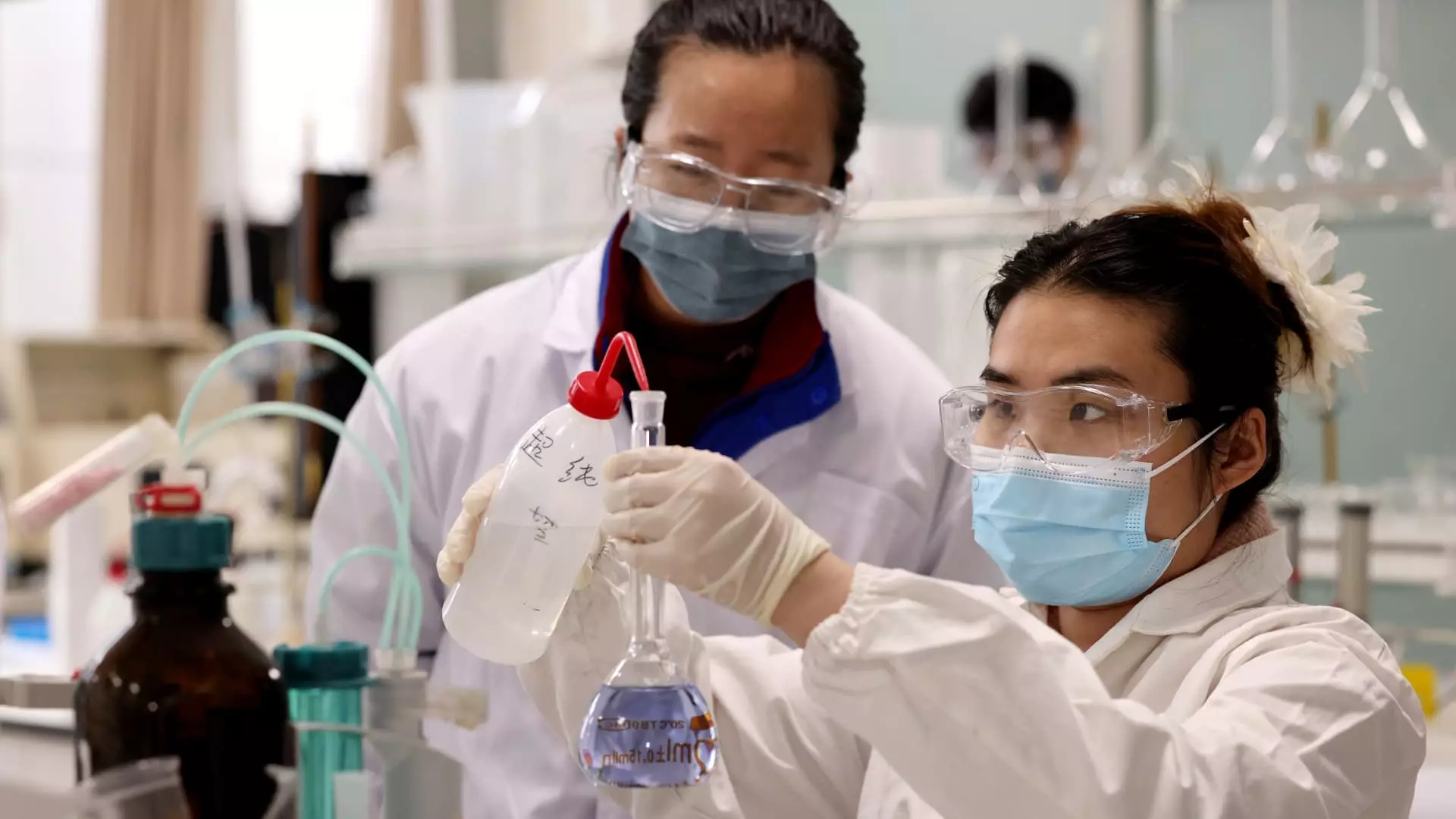In the unfolding global drama of technological competition, biotechnology has crept into the spotlight as a potential game changer. While American innovation in artificial intelligence often dominates public discussion, a seismic shift is underway in the biotech sector, particularly with China emerging as a formidable player capable of potentially outpacing the United States. A recent report by the Harvard Belfer Center outlines a startling revelation: China’s progress in biotechnology poses a genuine threat that could unbalance the existing global power dynamics.
This development is alarming, not only for policymakers in Washington but also for anyone invested in the future of American innovation. Imagine the profound implications if China successfully develops and commercializes breakthrough drugs or agricultural innovations first—this could overshadow U.S. advancements and diminish American influence on a world stage increasingly defined by technological excellence. If the stakes weren’t evident before, the message is now crystal clear: failure to address China’s rise in this sector could lead to years of lost ground.
Understanding China’s Strategic Advantage
China’s biotechnology sector operates under a governmental framework that rewards rapid development and deployment. Beijing has perpetuated a system where biotech is not merely a market—it’s a national priority. Unlike the U.S., which has developed a haphazard and reactionary approach, China’s long-standing investment strategies have nurtured an ecosystem that thrives on state-led initiatives. As seen in the report, China’s combination of abundant talent, flexible regulations, and a focus on production capacity is forging a path that could well transform the global landscape for healthcare and agriculture.
Cynthia Y. Tong, a co-author of the Harvard report, highlights that China’s regulatory frameworks allow for faster approvals and more streamlined processes, enabling quicker responses to market needs. The contrasting, often cumbersome U.S. procedures risk stifling innovation and drawing established companies into a mire of legislative red tape. The race is not merely a race of technology but of agility—a trait that gives China an undeserving edge.
The Rising Tide of Global Collaborations and Opportunities
Another angle that should concern U.S. stakeholders is how globalization plays into this story. Take Insilico Medicine, for example, which deftly navigates international partnerships to cut drug discovery costs through AI. With AI-driven breakthroughs emerging from various regions, including China, this blend of international collaboration paints a complex picture. Companies leveraging resources across borders effectively create a coalition that might not be bound by nationalistic policies. Thus, while the U.S. stalls, nimble innovators leveraging China’s vast resources can forge ahead, positioning themselves at the forefront of biotech breakthroughs.
This scenario raises an uncomfortable question: can American companies remain competitive without adopting a more global mindset? The reality is disconcerting: as regulatory frameworks differ from country to country, the allure of quicker, cheaper solutions might drive American firms to play a dangerous game of exploiting international labor and resources while neglecting domestic growth.
The Implications of Dependence on Foreign Innovation
The United States seems to stand at a crossroads, with some voices calling for aggressive measures to slow down China’s progress. Yet this perspective exemplifies a panic-fueled response to a far more nuanced situation. The risks associated with narrowing the gap could inadvertently stifle U.S. innovation instead of propelling it. By fostering an environment of suspicion and hostility towards global collaboration, American businesses may find themselves trapped in a semi-isolationist strategy at odds with the reality of an interconnected world.
The bipartisan National Security Commission on Emerging Biotechnology has articulated this urgency, asserting that failure to act now may result in a scenario where “no matter how fast we run, we will never catch up.” U.S. leaders must invest in building a coherent biotechnology strategy instead of a reactive, fragmented one. This means not only allocating funding to domestic biotech—but also fostering diplomatic relations that are conducive to collaboration rather than competition.
The Question of Ethical Dominance
As significant investments pour into China’s biotech capabilities, ethics also emerge as a crucial concern. If China finds itself at the cutting edge of biotechnology, it raises questions about the ethical implications of innovations that could become tools for political leverage. The specter of controlled health resources or monopolization of life-saving treatments haunting global relations could manifest as another arm of geopolitical might—a reality the U.S. must acknowledge seriously.
As the clash of ambitions between the U.S. and China intensifies, we face not only the challenge of technological supremacy but also the ethical ramifications that follow such dominance. Innovations in biotechnology, intended to save lives and transform industries, must be guided by principles that prioritize the welfare of humanity over individual national supremacy.
The questions loom larger than the race to innovate; they encircle the very fabric of global cooperation. Will the United States seize the moment to bolster its biotech sector and foster inclusive international partnerships, or will it underestimate the momentum gained by its rival? The battle lines are drawn, and the outcome will shape the future of health and technology for generations to come.

